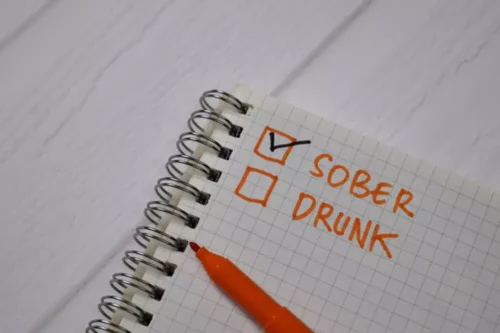
It can be challenging (but also helpful) to talk openly about your concerns about binge drinking with trusted friends and family. These people can support you when you say no to an extra drink or ask to hang out in a different environment where you’re less likely to want a drink in hand. This is sometimes called the “5+/4+ rule” (5-plus/4-plus rule) of binge drinking. While drinking alcohol is normalized socially and is legal above the age of 21 in the United States, it can still have harmful impacts on the body. The good news is that binge drinking can be prevented by adjusting your habits and being more intentional when you pour yourself a drink. The main indicator of a binge-drinking episode is having four to five drinks (or more) within two hours.

What Happens to Your Body When You Binge Drink
If you’re having a hard time shifting your focus from internal to external, consider the quality of your inner self-talk. Are you beating yourself up for a mistake you made earlier? Dissect and challenge those worries with more realistic thoughts. The truth is other people are usually far less focused on you than you believe.
How to help someone who binge drinks
- Depending on your age, different factors may come into play, but some motivations are common among all age groups.
- It might seem convenient when you have company over, but it also makes it easier to reach for multiple drinks while you’re alone.
- The National Helpline does not provide counseling, but it does connect callers with local resources such as counseling services, support groups, and treatment facilities.
- That should cheer moderate drinkers and encourage the rest of us to drink less.
- Pursue new interests with them that don’t involve drinking.
Completely cutting alcohol out of your life is always an option. But if you don’t want to take that big of a step, there are ways to drink more responsibly. Binge drinking is when someone drinks a large quantity binge drinking effects of alcohol in a short amount of time. Many experts define it as drinking enough alcohol during a 2-hour period to bring the BAC to 0.08%. Generally, this is around four drinks for women and five drinks for men.
More in Addiction
- Some binge drinkers only drink once a week; others even less frequently.
- If you have a hard time moderating your pace, try to stick with drinks that have low alcohol content.
- To keep that limit in mind, consider writing it down, setting a reminder on your phone, or telling a friend about your intentions.
Simply explain why you’re concerned about their binge drinking. You might point out the effects that it’s having on their mood or physical health. Or you could let them know how it’s affecting your relationship. Alcohol abuse can affect brain structure development, so people who start binge drinking as teens or young adults may experience issues with learning and concentrating. Studies show that binge drinking can affect your working memory, which is your ability to store short-term information and keep track of what you’re doing.

Alcohol use disorder

Additionally, this drinking behavior spikes blood alcohol levels significantly and leads to severe intoxication. It’s not uncommon for people to get defensive when others point out their unhealthy drinking habits. Your loved one might deny the problem, deflect, or get mad at you. Reassure yourself that speaking up is a compassionate gesture. If you don’t voice your concerns now, your loved one may not give up their alcohol abuse until they experience more severe consequences. If you’re a binge drinker, you may not drink every day, but when you do start drinking, you likely have a hard time calling it quits after just one or two drinks.
But bodies absorb alcohol differently depending on factors including body type and age. Binge drinking is when a person consumes enough alcoholic beverages during a 2-hour period to bring their blood alcohol concentration (BAC) to 0.08% or higher. Typically, this means four drinks for women and five drinks for men. Binge drinking is excessive alcohol consumption on one occasion. The definition of binge drinking, according to the National Institute on Alcohol and Alcoholism (NIAA), is “alcohol consumption that brings the BAC to 0.08 g/dL.”

Chronic Conditions Related to Alcohol Misuse and Binge Drinking
You might experience adverse effects on your mood while you’re intoxicated and even after you sober up. Alcohol abuse and mood https://ecosoberhouse.com/ disorders can even form a dangerous cycle. The lack of sleep worsens your depressive systems, so you turn to alcohol again.
While not formally recommended, an occasional margarita, craft beer or glass of wine isn’t inherently considered problematic. Binge drinking, on the other hand, poses a number of risks to our health, both short- and long-term. Alcohol can damage body tissues and interfere with your body’s ability to absorb nutrients and break down harmful chemicals.
- Binge drinking has both short- and long-term health consequences.
- Typically, this means four drinks for women and five drinks for men.
- Their volatile behavior and emotions might even have an effect on your relationship.
- However, even a mild disorder can escalate and lead to serious problems, so early treatment is important.
- A few mixed drinks might lighten your mood in the evening.
- If you feel that you sometimes drink too much alcohol, or your drinking is causing problems, or if your family is concerned about your drinking, talk with your health care provider.
- This is when your blood alcohol levels are so high that your body isn’t able to remove the toxins quickly enough.
More research shows that even a single episode of binge drinking can have serious effects on all parts of your body, not just your brain. Nine out of 10 binge drinkers aren’t dependent on alcohol, but doctors and scientists think they’re more likely to develop alcohol use disorder. If you find it hard to stop drinking once you have started, you could also have a problem with binge drinking and possibly alcohol dependence. If you binge drink, you are putting your health at risk even if you’re drinking less than 14 units per week in total (as advised by the Chief Medical Officers’ low risk drinking guidelines).
Short Takes with NIAAA: What is Binge Drinking?
Even older adults can find it harder to turn down “one more drink” when they’re out having fun with friends. And peer pressure doesn’t necessarily come in the form of friends loudly encouraging you to drink more. You might convince yourself that you need to drink to impress someone or fit in with the crowd. This can be particularly true of teens who want to drink to seem older or more mature. It’s easy for teens and young adults who aren’t sure how much alcohol they can handle to go past their limits. Even older adults can overestimate their tolerance and wind up drinking far more than they can handle.
